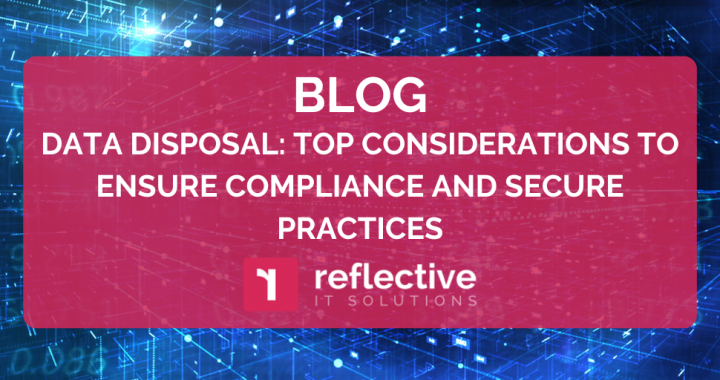In the digital era, proper data disposal is essential for businesses to safeguard sensitive information, maintain regulatory compliance, and protect their reputation. This blog will explore the top considerations businesses need to keep in mind to ensure compliance and secure practices when disposing of their data. By focusing on these seven key areas, your organisation can confidently and securely manage data disposal.
1. Understanding Compliance Requirements: Compliance with data protection regulations, such as GDPR and HIPAA, is crucial for organisations handling sensitive information. Familiarise yourself with the specific requirements and guidelines that apply to your business, and ensure that your data disposal processes adhere to these standards.
2. Data Security Considerations: Secure data disposal methods, such as encryption, overwriting, and physical destruction, should be employed to prevent unauthorised access to sensitive information. Evaluate the security measures your data disposal partner implemented, and ensure they utilise industry-standard techniques to guarantee data is irrecoverable.
3. Environmental Responsibility: Responsible data disposal also includes minimising environmental impact. Opt for a data disposal partner who prioritises eco-friendly practices, such as recycling or repurposing electronic equipment, in compliance with regulations like WEEE Directive.
4. Choosing a Reliable Data Disposal Partner: Selecting a trustworthy data disposal partner is critical to ensuring secure and compliant practices. Look for providers with relevant certifications, such as ISO 27001 and ISO 14001, as well as experience working with businesses in your industry.
5. Proper Documentation and Recordkeeping: Maintaining comprehensive records throughout the data disposal process is vital for demonstrating compliance and accountability. Ensure your data disposal partner provides detailed documentation, including asset tags, disposal methods, and certified data erasure certificates.
6. Employee Education and Training: Educate your employees on the importance of secure data disposal and provide training on best practices. By fostering a culture of security within your organisation, you can reduce the risk of data breaches and ensure compliance with relevant regulations.
7. Ongoing Compliance Monitoring: Regularly review and update your data disposal processes to stay current with evolving compliance requirements and industry best practices. Conduct periodic audits to verify that your company consistently adheres to secure and compliant data disposal standards.
Proper data disposal is crucial for businesses in today’s digital era, and by focusing on these seven key areas, you can ensure compliance and secure practices. Reflective IT is committed to helping businesses navigate the complexities of data disposal. Partner with Reflective IT to protect your sensitive information, maintain compliance, and safeguard your business’s reputation.










